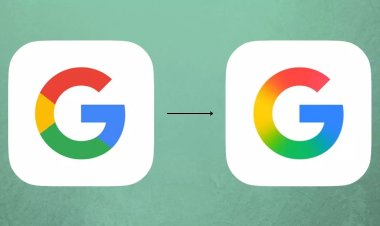'Account-based marketing delivers maximum brand growth.
Lara Brownlow, LinkedIn's Head of Channel Sales APAC, and Gil Burgmans, Senior Partnerships Lead, discussed why the platform offers ABM services and what it can do for brands and marketers.

Account Based Marketing (ABM) is a business-to-business (B2B) strategy that focuses sales and marketing efforts on high-value target accounts. ABM, as opposed to a broad marketing campaign that reaches a large audience in the hopes of making a connection, identifies important targets and markets tailored campaigns against a very limited list.
All of this and more was revealed during a discussion with Lara Brownlow, Head of Channel Sales APAC, and Gil Burgmans, Senior Partnerships Lead, LinkedIn. They discussed how leading businesses are utilizing ABM, how LinkedIn advertisements differ from Facebook ads, what precisely LinkedIn focuses on, why advertising on LinkedIn is more expensive than other platforms, and how ABM promotes brand marketing.
"Account Based Marketing facilitates the transition from traditional B2C to B2B marketing." Furthermore, it helps us understand the correct audience when selling products to companies rather than buyers. In a nutshell, ABM is a process in which we target different firms at different times in order to understand and adapt to the company's broader demands," Burgman explained.
Brownlow, speaking about how organizations are adopting ABM to connect marketers with sales, stated, "Our larger portion of customers is B2B, and we work with a lot of companies across tech, finance, and many other verticals." If we go deeper into the data, we can see how Adobe reframed a lot of their marketing approach to create an ABM strategy with specialized types of procedures and pulled their sales and marketing teams much closer together. Across the board, we have customers who are just getting started with their ABM strategy, as well as some of our largest global technology firms who are considerably more advanced and further along in their path."
Burgman elaborated on the results firms are seeing after applying the ABM strategy, saying, "We see tons of brands on LinkedIn having incredible engagement on their pages and they are freely sharing content related to their companies and employees."
When asked how LinkedIn employs the ABM model, Brownlow responded, "ABM is something that has been around for a long time, but the advancements in technology and our marketing technology partners that are coming on board now to offer better functionality around measurement, campaign set up, experimentation, and implementation, that's advancing." Furthermore, in today's economic situation, the return on investment is being analyzed more than ever, and we know that a targeted approach on the most valuable accounts will always be at the core of a marketing plan in these tougher times."
Burgmans remarked of LinkedIn ads, "Unequivocally, LinkedIn provides a professional platform for an individual to gratify their professional needs." It is a setting in which we attempt to create economic prospects for brands, enterprises, job creators, and job searchers. Professionals use LinkedIn to network and learn more about their various areas. Furthermore, it is an excellent learning resource for both job searchers and employers. Companies are eager to invest in LinkedIn because they understand the ROI of their ad spends."
Burgmans explained why advertising on LinkedIn is more expensive than other platforms, saying, "The ROI of ad spend is much higher on LinkedIn, which is why ad spend on LinkedIn is more expensive than other media platforms." By judging it on the face value that the brand places, attribution placement, the entire ecosystem of partners, connecting your CRM system, and connecting your sales teams to it, you can show that it delivers a ton of value for the amount that you're paying."
Brownlow also explained what sets LinkedIn apart from other networks. "I've been at LinkedIn for ten years, and when I first started, people still thought of LinkedIn as a kind of static, digital resume, and it was more of a recruitment type of site." It is now much more of a professional network where we are. It is where most business is done, and this will continue to evolve over the next few years. We don't even consider ourselves to be a social network. We are a business platform that has seen many advancements.

 Sumit Rawat
Sumit Rawat 










